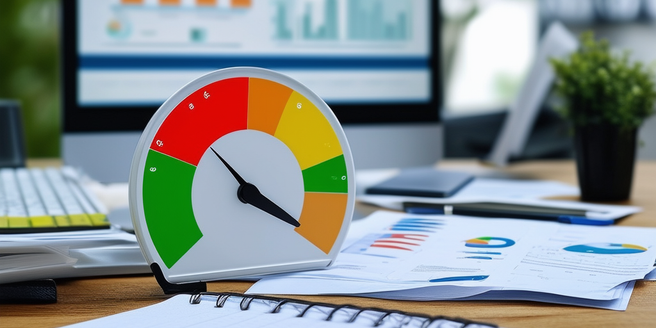
Understanding What a Credit Score Is
A credit score is a numerical representation, derived after examining an individual’s history of managing debts and making timely payments. The more insightful a person is in their financial management, the higher their credit score. Primarily based on data sourced from credit bureaus, this score plays a key factor in determining creditworthiness of individuals, particularly when applying for different forms of credit like a loan, credit card, etc.
Understanding your credit score yields a more detailed perspective of your financial standing. By comprehending your score, you can grasp your likelihood of being approved for different credit facilities, and use this information to improve your rating. This understanding enables informed decisions, potentially resulting in better interest rates and easier approvals for credit. Such understanding also helps in safeguarding against fraud and ensuring your financial future.
Commonly Believed Myths About Credit Scores
Misconceptions about credit scores pervade society, including the belief that a poor score is permanent and cannot be improved, or that not using credit means you don’t have a credit score. Unbeknownst to many, the dynamic nature of credit scores implies that better money management can lead to a better credit history and an improved score over time. Meanwhile, factors like payment history, number of open accounts, credit mix, and duration of credit history also impact the score, demonstrating that every individual’s situation differs. Some may negatively affect their score, while others find it resilient. Therefore, understanding and educating oneself about how credit scores function is vital in dispelling these misconceptions and taking control of one’s financial future.
Impact of Late Payments on Credit Score: Myth vs. Reality
A widespread misbelief is that a late payment instantly leads to a significant drop in one’s credit score, but in reality, its impact is not always immediate or guaranteed. Instead, several factors determine the effect of a late payment on a person’s credit score, such as the timing and recency of the delay, along with an individual’s preliminary credit score. Late payments that are significantly behind schedule, highly recent, or on a lower initial credit score are more likely to cause a considerable drop. Hence, it’s essential to understand that the impact of a late payment on credit score is a nuanced issue, not a straightforward, inevitable reduction.
True Influence of Credit Utilization on Credit Score
A common myth is that credit utilization, the ratio of your used credit to your total credit limit, doesn’t impact your credit score significantly. Actually, it is a critical factor in your credit score calculation. For instance, if your credit limit is $10,000 and you’ve used $5,000, your credit utilization is 50%. Payment history isn’t the sole factor contributing to a credit score; credit utilization plays a pivotal role, constituting approximately 30% of your FICO score. High credit utilization can negatively affect your score, indicating to lenders that you may be a high-risk borrower, over-reliant on credit. Therefore, staying within your credit limit and being aware of your usage is crucial for improving your credit score, dispelling the widespread myth.
How Often Your Credit Score is Updated: Facts
A common misbelief is that credit scores are updated on a precise monthly cycle. In reality, creditors report new information, such as current account balance and recent payment history, to credit bureaus every 30 days. This data serves to refresh your credit evaluation. However, the specific reporting day varies by lender due to internal policies, and may not correspond with the start or end of the month. Furthermore, not all creditors report to the bureaus, contributing to the irregularity in credit score updates.
